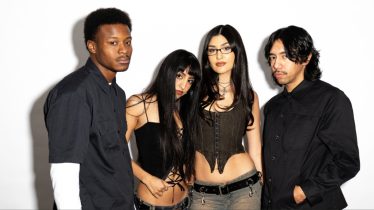This Is Hell
This Is Hell
Misfortunes
[4/5]
The “1-2 fuck you” ethos of hardcore has been gently eschewed in recent times by certain bands who understand that sometimes concocting brooding, slowly unraveling bursts of rage serve a better impact. This Is Hell have been progressive participants in this movement for the past four years. On their second full-length, the band spend approximately 40 minutes charging through throbbing transgressions of hardcore’s rules while maintaining a straightforward and impressively intense delivery. Melodic undertones punctuate the band’s songs yet never give off a single corny moment, and subtle dynamics keep the listener compelled for a comparable marathon considering hardcore’s usual “time restrictions.”
Musically, Misfortunes moves This Is Hell further away from the Give Up The Ghost comparisons dogging them since their inception and delves further into a dark, massive sound more reminiscent of the Hope Conspiracy. Despite a lineup revamp between records, fans should welcome a sound that is more raw and aggressive than Sundowning. It’s that type of careful self-improvement and rugged hard work that prove This Is Hell are growing to not only be one of hardcore’s biggest, but best. (TRUSTKILL) Brian Shultz
ROCKS LIKE:
THE HOPE CONSPIRACY’S ENDNOTE
COMEBACK KID’S TURN IT AROUND
KILLING THE DREAM’S IN PLACE APART
IN-STORE SESSION WITH GUITARIST RICK JIMENEZ
How did this recording experience differ from past ones?
We did our first [self-titled] EP, Sundowning and two songs for the Cancer Bats split 7-inch with Dean Baltulonis. Every time the experiences got better and better with him, but I think we just [wanted] to do something different. We wanted the sound to be a little heavier and aggressive, and a little more raw. We did the drums with Tomas [Costanza] at Killingsworth [Recording], and we did everything else-the vocal tracking, the guitars and bass-with Joe Cincotta and Dan Kenny at Full Force Studio. They do mostly death metal.
Were there any conscious changes in the way you went about the songwriting as compared to Sundowning?
I think it was really not so much “[doing] something different” than not wanting to repeat ourselves exactly. It’s still the same band, but we’re not [just] rewriting; we’ve expanded our sound in some ways.
Essentially every band I’ve ever done besides This Is Hell was with Johnny [Moore], the new [bassist]. We’ve been best friends since 1985; having him come to the fold was perfect, [especially] writing music together like this on a bigger level than we’ve ever written before-we’ve done millions of other bands. I could play a song on guitar and show it to him, and he’ll play a song on bass and before we [even] talk about [lyrics], he kind of already knows what the song is about. I don’t think I have that connection with [former bassist] Jeff [Tiu], but I think I have it with John just because we’re so close in life. He knows me so well, personally and musically. I think us as a songwriting team has only made This Is Hell that much stronger.
You said there is a story along the album much like Sundowning.
If you back a certain ideal so hard, or if you’re into something that you kind of put your faith into-then it kind of falls apart on you-dealing with that is really hard. It’s different for each person, and personally, I’m a manic-depressive, so certain things really affect me very differently than they might affect somebody else. The album is to me-to us-it’s very human.
What I really, really don’t like hearing nor like people telling me is the whole “look on the bright side” outlook. Sometimes I may feel miserable and want to feel like that. It’s kind of like, “Let me feel the way I feel.” I’ll deal with it how I want to deal with it. –Brian Shultz







